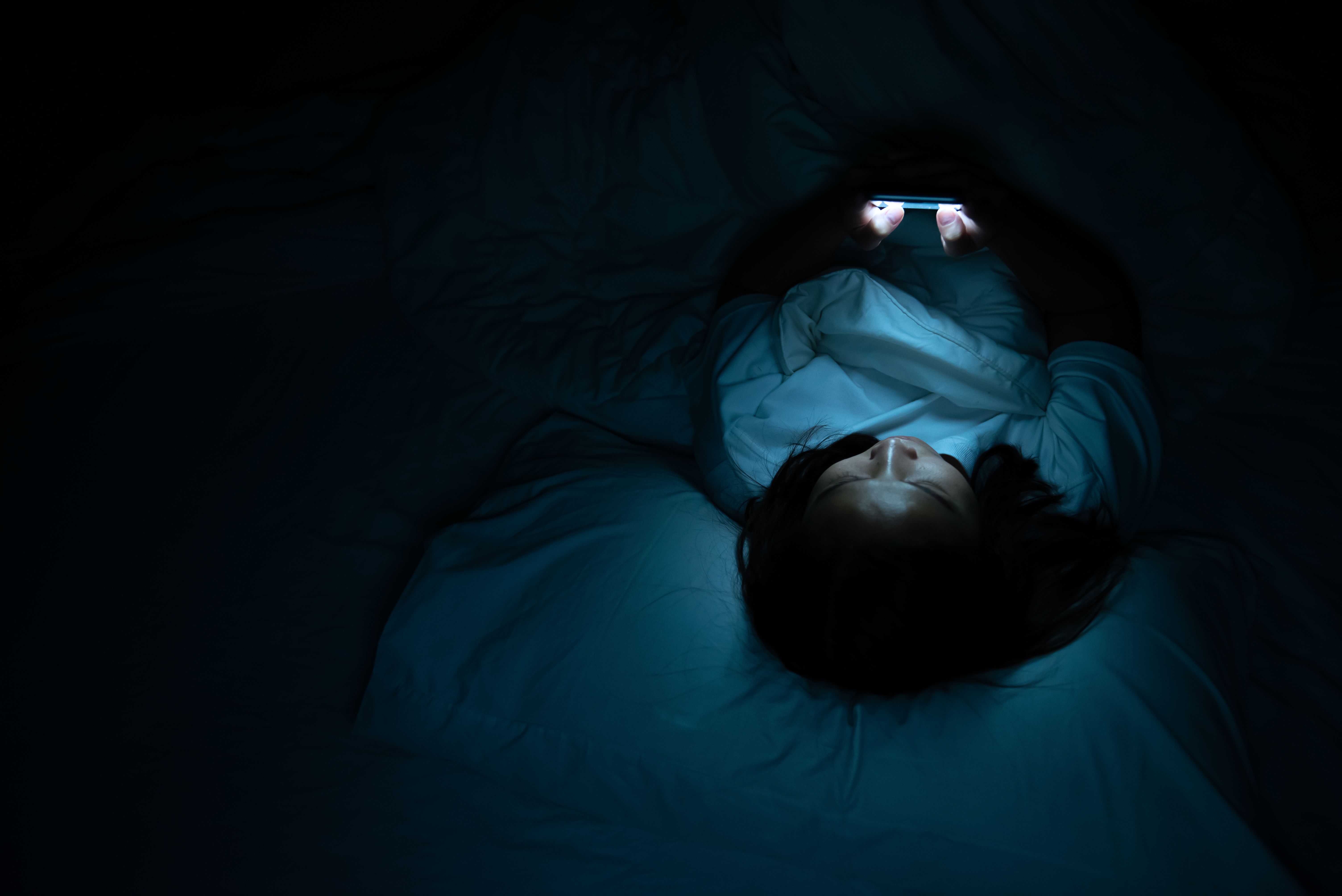- Center on Health Equity & Access
- Clinical
- Health Care Cost
- Health Care Delivery
- Insurance
- Policy
- Technology
- Value-Based Care
Screen Time Inhibits Sleep for Most Americans, Survey Finds
Survey results show 91% of respondents lost sleep due to binge-watching TV, and only 8% of Americans reported never staying up past their bedtime for this reason.
This article was originally published on HCPLive.
Excessive screen time before bed hinders sleep, according to new research.
The American Academy of Sleep Medicine (AASM) commissioned an online survey of 2005 adults in the US between March 24 – 29, 2023 through Atomik Research, a market research agency. The main question the survey answered was: “How often have you lost sleep because you stayed up ‘past your bedtime’ to do the following?"1
Image Credit: reewungjunerr - stock.adobe.com

According to the survey, 91% reported they have lost sleep because they stayed up to binge-watch multiple episodes of a TV show. Also, 75% of respondents said they stayed up past their bedtime to online shop.2
“Bedtime procrastination is a common problem, as people often stay up later than intended while binge-watching a program or shopping online,” Alexandre Abreu, MD, a sleep medicine physician and a spokesperson for the AASM, said in a statement. “It’s important to prioritize sleep so that you can feel good and perform your best throughout the day.”
Only 8% of Americans had “never” lost sleep to stay up past their bedtime to watch extra episodes of TV.1 Moreover, men (43%) were more likely than women (33%) to lose sleep by binge-watching TV. Generation Z (51%) and millennials (43%) were the generations more likely to lose sleep due to binge-watching TV than Generation X (32%), Baby Boomers (13%), and Silent Generation (13%), with Generation Z (aged 18 to 26 years old) being the most likely.
While 51% of adults aged 18 to 24 years old reported “often” losing sleep due to TV watching, this only applied to 14% of adults > 65 years old. Also, 24% of adults > 65 years old reported they “never” lose sleep due to TV distractions, but the same only applied to 5% of the young adult respondents.
The survey also revealed that when people have trouble falling asleep, 50% of Americans turn to watching TV and 43% go on their phones. Most of the respondents (87%) keep their smartphones in their bedroom, often beside their bed, making it easier to midnight scroll and binge-watch TV.2
“With so many digital distractions vying for our time, it can be tempting to watch 1 more episode or scroll through one more viral video, but anything that keeps us from getting the recommended 7 hours of sleep each night can be harmful to overall health and well-being,” Abreu said.1
When someone watches another episode of TV or scrolls on their phone, they not only push back the time they go to bed, but the blue light keeps them awake.3
“The light from our screens can delay our transition to sleep, even if we are engaged in some soothing activity online,” Joanna Cooper, MD, a neurologist and sleep medicine specialist with the Sutter East Bay Medical Foundation, told Sutter Health. “But it’s more likely that our evening texting, television shows, or video games are stimulating in themselves, keeping the brain busy and wound up, and even causing adrenaline rushes instead of calm.”
The American Academy of Sleep Medicine recommends people turn off all electronics 30 minutes before sleep, place phones in another room (and if the phone serves as an alarm, consider getting a physical alarm clock), create a relaxing non-electronic nighttime routine such as reading a book or journaling, and to turn off push notifications.2
References
1. AASM sleep prioritization survey. American Academy of Sleep. https://aasm.org/wp-content/uploads/2023/11/sleep-prioritization-survey-2023-binge-watching-tv.pdf. Accessed December 4, 2023.
2. Over three-fourths of Americans lose sleep due to digital distractions – sleep experts urge a change. News Wise. December 4, 2023. https://www.newswise.com/articles/over-three-fourths-of-americans-lose-sleep-due-to-digital-distractions-sleep-experts-urge-a-change?ta=home. Accessed December 4, 2023.
3. Screens and tour sleep: The impact of nighttime use. Sutter Health. https://www.sutterhealth.org/health/sleep/screens-and-your-sleep-the-impact-of-nighttime-use#:~:text=Device%20screens%20produce%20blue%20light,their%20brains%20and%20fall%20asleep. Accessed December 4, 2023.
The Breakdown: Breast Cancer Research Awareness Day
August 19th 2025Breast cancer is the second most common cancer among women and the second leading cause of cancer-related deaths among women in the US. In light of Breast Cancer Research Awareness Day, The American Journal of Managed Care® breaks down the most recent advancements in breast cancer prevention, screening, and therapies.
Listen
